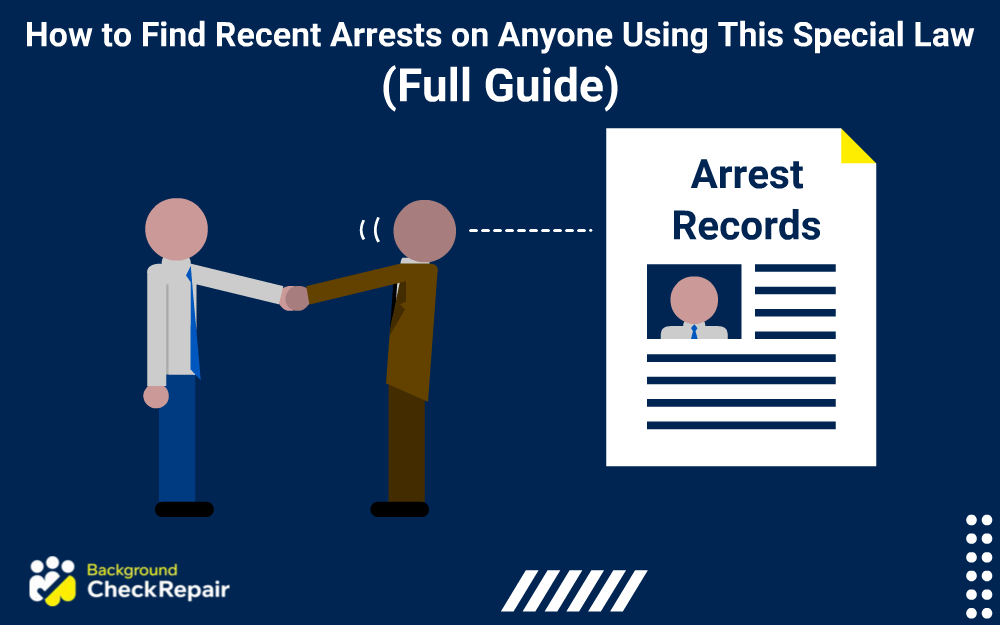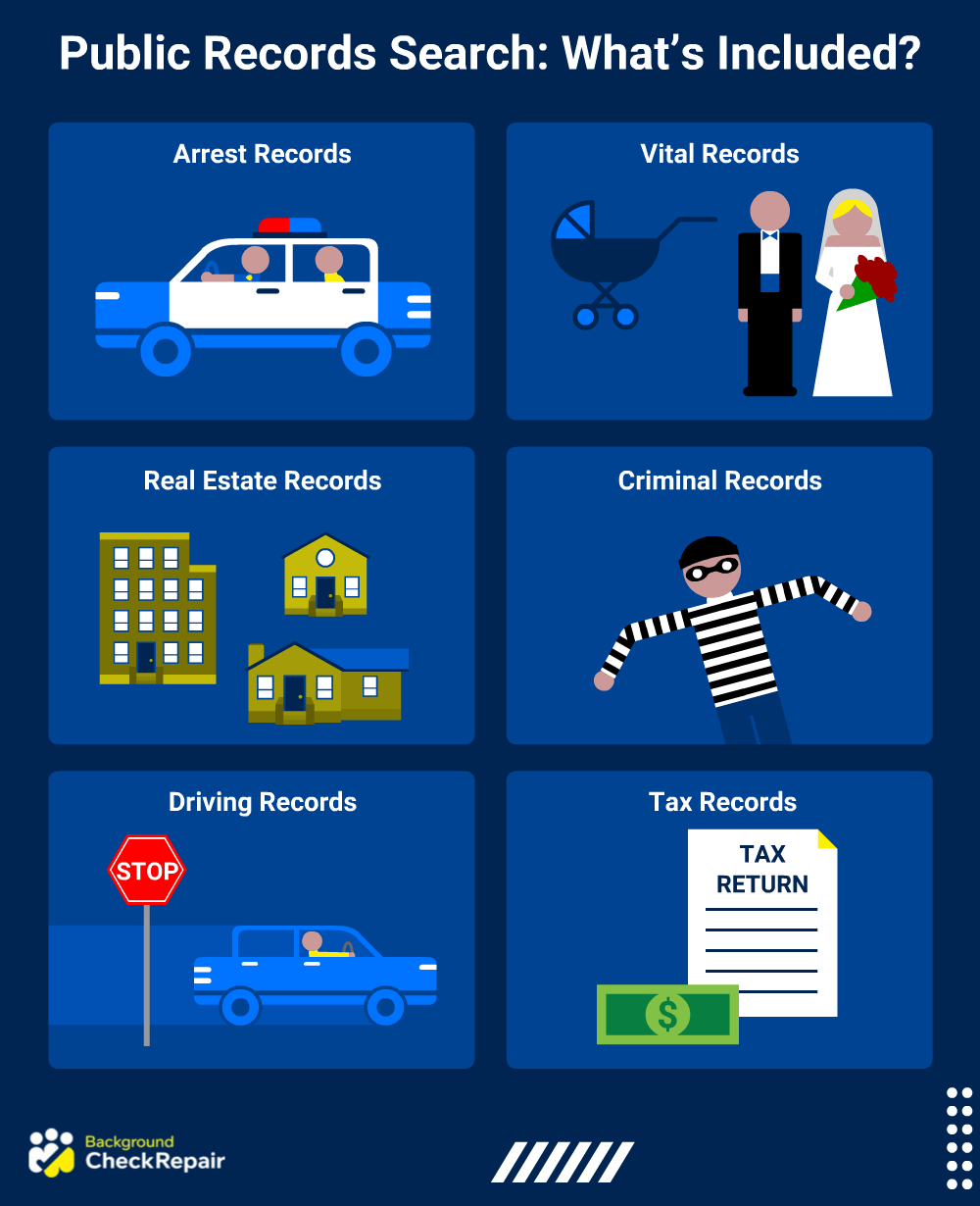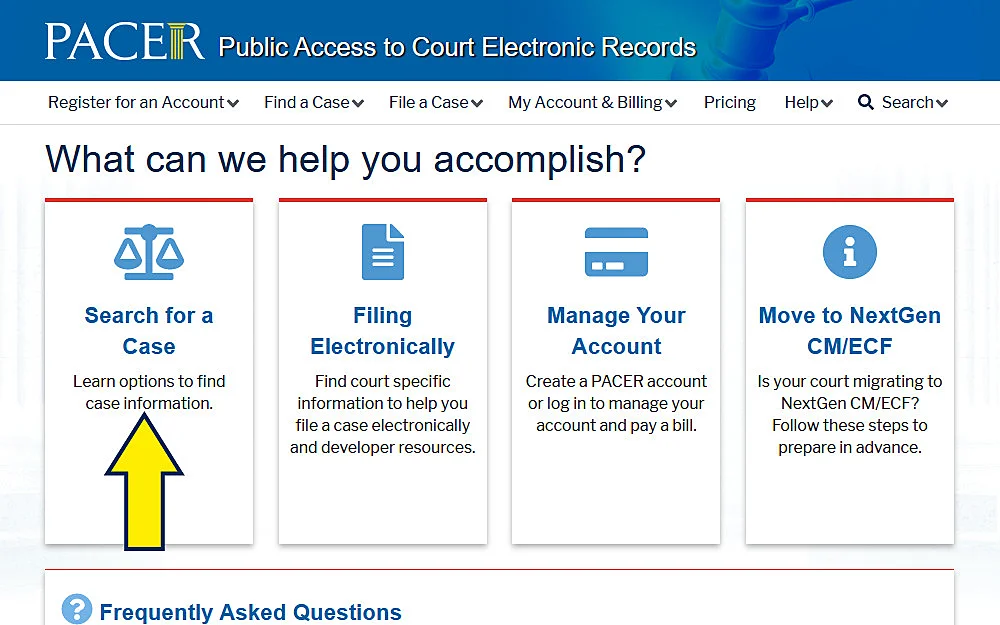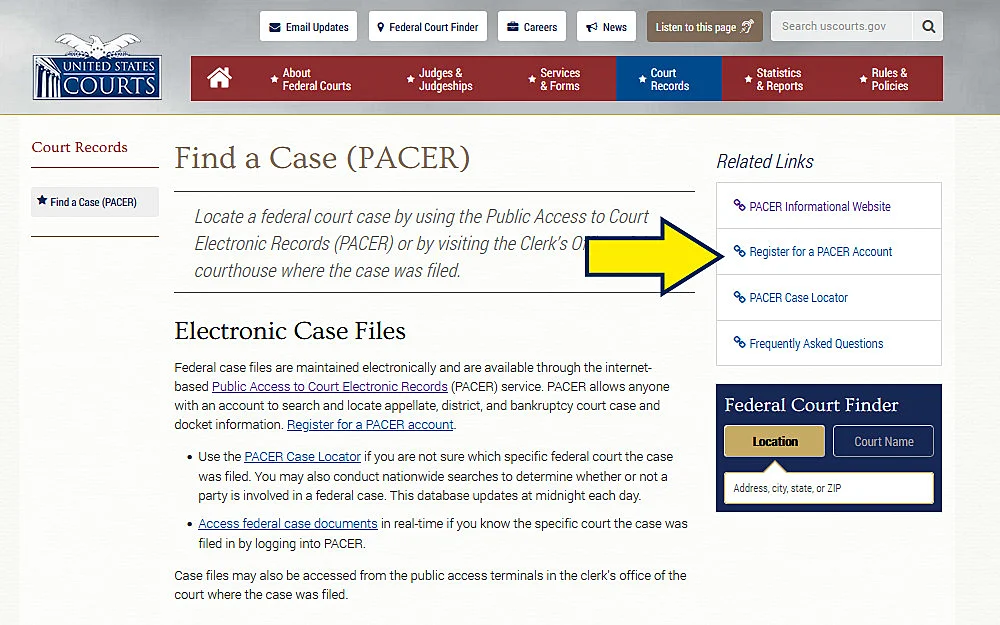We use cookies to ensure that we give you the best experience on our website. If you continue to use this site we will assume that you are happy with it
How To Find Recent Arrests on Anyone Using This Special Law (Full Guide)
 Written by Background Check Repair
Written by Background Check Repair
Criminal Records | June 7, 2024

Table of Contents
Whether looking for personal or professional reasons, knowing how to find recent arrests isn’t always easy to figure out. While most arrest records are considered public information, there are some exclusions and roadblocks when accessing them, especially when searching for criminal histories to use in professional screenings.
However, there is a special law hat applies to federal records: the Freedom of Information Act (FOIA). This law makes federal records accessible to all members of the public.
This means that anyone can find recent arrest records on anyone else, as long as that person knows how to locate them.
But what exactly shows up in public records databases? Search now to find recent arrests.
Keep in mind that because of how different states operate, finding old arrest records can be difficult if the crime occurred 10 or more years ago. This is not a hard and fast rule, as it also depends on what type of background search is used.
Public Records Search: What’s Included?
In most states, criminal information is considered public record if it is documented or provided by a public agency. The types of information usually considered public record include1:

- Arrest Records
- Vital Records (Such as births and deaths)
- Real Estate Records
- Criminal Records (Unless sealed or expunged for removal from criminal records)
- Driving Records (Including speeding tickets on department of motor vehicles reports)
- Tax records (depending on if there are tax liens showing on public IRS documents)
Keep in mind that access to public records varies depending on whether it is a state record or a federal record. Some information doesn’t fall under the FOIA, including:
- Confidential trade secrets and business information
- Information that deals with national security
- Internal employees and their processes
- Memos or letters sent within the federal government that are protected by law
- Bank supervision information
- Law enforcement details
- Any information that is exempt from FOIA by other laws
Simply put, arrest records are public and can be searched. Conducting a search is simple with the correct steps.
Find Arrests By State Court Records
Before searching, it’s important to know that the laws relating to public records are different for each state. This means that some arrest records may not be viewable online, but that doesn’t mean that someone can’t learn how to find recent arrests, it just means a little more digging is required.
The table below includes links to each states’ official inmate, arrest, or public records site that offer online searches and links to more information for those that do not. Keep in mind that you can also sometimes find out the reasons for a person’s arrest, using police reports.
How to Use State Resources to Find Someone in Custody
Depending on the state, the methods used to access recent arrest information (even arrests with no convictions) will differ, so the process for how to find recent arrests and how to check if someone is in police custody will also fluctuate. There are some states that offer online databases, while others require individuals to send in written requests to gain access to public records. If the state offers an online database, it is important to follow these steps:
Step 1. Search for the State Website
Begin by locating and accessing the state website or database (like the arrest records of Texas). This can usually be done through an online search or by typing in the address directly into the search bar. It may also be helpful to utilize the table listed above for links for each state. Once the database is located, navigate to the section that allows the input of identifying information.
Step 2. Enter the Person’s Name or Other Information
Once the section is found, type in the person’s name and any other available information. A search can’t be completed without having an individual’s last name at the very least. Once the information is entered, click the submit button.
Step 3. Review the Results
The search will provide any information found within the database that matches the entered criteria. Review any information that comes back to make sure it matches the person being searched for. If a search doesn’t provide results, it could mean that the records aren’t up to date. It could also mean that there aren’t any recent arrests.
How to Use County Databases to Search and Find a Recent Arrest
Before searching a county arrest record database, the person’s name or other identifying information should be on hand.
Step 1. Search for the County Website
The first step in locating county arrest records involves searching and locating the county website. The easiest way to accomplish this is to type the name of the county being searched with the words “arrest records,” or by googling the county sheriff’s office.
For example, if someone lives in Hazard, Kentucky. Type in “Hazard Kentucky Sheriff Office.” That will result in both the Hazard police and the Perry County Sheriff’s office.
Open both sites, in order to search both. (Note: Almost every official government site will have the state or “.gov” as the domain name.)
Users may notice that there is another link to follow to find recent arrests, like on the Perry County website. Simply follow the link to the sheriff’s office website.
Once there, choose services (usually from the toolbar along the top of the page) and look for “arrest records,” or “police reports.” In some cases, users will be limited in the amount of information they can glean. In Hazard, only people directly related to the crime or report may request the information.
However, if the county being searched offers an online database of arrest records, such as New York, proceed to the next step.
Step 2. Enter the Person’s Name or Other Information
Many counties will allow an online search using only a last name, but the search will be quicker with a first and last name. There is also an ability to enter more identifying information, including date of birth, race, or even sex.
Step 3. Review the Results
The search will return information that matches what was entered as search criteria. In cases where a paper request was required, there will likely be a waiting time. Review the options that came back and confirm that the supplied information is about the correct person.
In most cases, results will include both personal details and information about the person’s arrest. Many searches will also provide a booking photo from the time of the arrest. If the information found isn’t satisfying, there is an option to go even further and learn how to find out if someone is a felon for free.
Alternatives to Online Searches
If the county does not offer an online portal, a written request will be required to gain access to arrest records.4 This can be done by visiting the county website and navigating to the page that describes information about public records requests. For example, Washington County in Oregon has a page dedicated to public records requests, and explains how to find recent arrests along with helpful information and details about the procedure.
The request procedure mentions that the county will review all requests and determine whether or not they are warranted. If the information is public, the county records officer will send a response within 10 days regarding any fees or extra time associated with providing the records.5
How to Use Federal Court Records to Find Criminal Conviction Records and Public Arrest Records
Unlike state records, federal courts are required to follow the guidelines set aside by the Freedom of Information Act. This Act serves to make public information easily accessed by members of the public. Information about criminal records and public arrests can usually be found through the online PACER portal.
Step 1. Navigate to the PACER Website
The first step in searching federal records will require navigating to the PACER website. PACER will allow access to electronic records, which are usually available for court documents after 1999.2

Step 2. Register For an Account
Before accessing the information on PACER, all users will need to register for an account. This can easily be done through the PACER website, and will require the user to claim what type of account is needed. In most cases, it will be necessary to choose the option for Case Search Only.
Step 3. Search the Database
After registering for the database, the ability to search through the case records will become possible. While registration can be done at no charge, a fee will be required to access court records on the site.
There are options for waiving the fees, but they are only available to those who qualify. A list of qualifying people can be found on the PACER website.

Checking with Bail Bondsmen
As a final option, bail bonds agencies can provide arrest information to certain individuals. Bail bondsmen provide financial assistance in the form of a bail bond to those who have been arrested for a crime.
In most cases, bail bondsmen will have information about recent arrests.3 Unfortunately, they may not be able to share this information with the public unless the person requesting the information bears a direct relationship with the person in question.
However, they can make information about an arrest public if the person who was arrested skips their bail. When someone skips out on their bail, a warrant is usually issued for their arrest, and this type of warrant is usually public information. Bail bondsmen will share information about an arrest with a bounty hunter in order to recuperate any funds lost by the person skipping out on their bail.
Public records are those that are available for the public to access and view, and arrest records typically fall under this ‘special law.’ The way this information is obtained differs between each state and county but is usually the same at the federal level.
But, no matter the reason, knowing how to find recent arrests can be helpful in both personal and professional life.
References
1Ballotpedia. N.d. Freedom of Information Act. 13 Dec 2021. Web. <https://ballotpedia.org/Freedom_of_Information_Act>
2United States Courts n.d. Find a Case (PACER). 13 Dec 2021. Web. <https://www.uscourts.gov/court-records/find-case-pacer>
3Bail Agent Network. N.d. Are Bail Bonds Public Records? 14 Dec 2021. Web. <https://www.bailagentnetwork.com/portfolio/are-bail-bonds-public-records/>
4The Law Dictionary. N.d. Where to Find Recent Arrests. 14 Dec 2021. Web. <https://thelawdictionary.org/article/where-to-find-recent-arrests/>
5Washington County Oregon. 8 Jun 2021. Administrative Procedures. 20 Dec 2021.Web. <https://www.co.washington.or.us/Support_Services/upload/203-A-Public-Records-Request_PROCEDURE_final_b.pdf>
